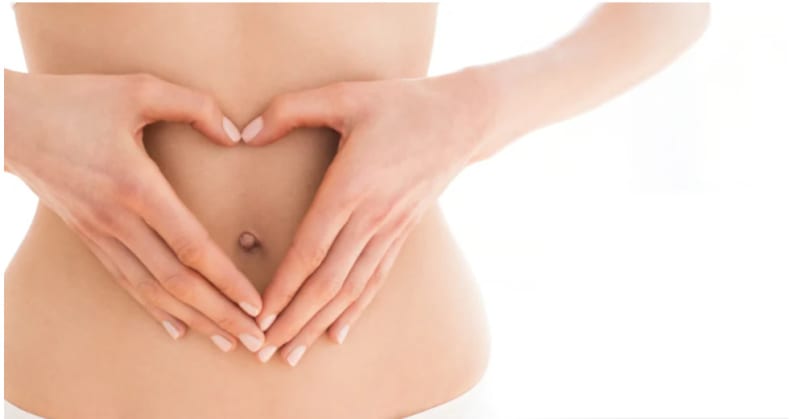Get A Handle On Hormones On Women’s Health & Fitness Day
Dr. Maria Luque answers the important health and hormone questions. 🙂
Dr. Maria Luque
National Women’s Health & Fitness Day occurs annually, during the last Wednesday in September, and was founded to highlight women’s health issues; encouraging ladies to look after themselves and get a handle on their fitness.
M&F talked to Dr. Maria Luque, a contributing author to the NASM Women’s Fitness Specialization program, and the founder of Fitness in Menopause, to get some answers on the important questions concerning how issues like stress and hormones may play a role in our fitness journey at any age, and how we can navigate obstacles to become the best possible version of ourselves.

Can exercise help females who may be going through a time of stress?
Absolutely. There’s evidence that physical activity, especially aerobic and intense physical activity, can help to alleviate stress and depression. Over the past 15 years, many studies have shown the benefits of regular physical activity and depression even during the menopause. Women that exercise more tend to be more positive, have more energy, and feel better overall.
1. Can hormone levels have an effect on bodyweight?
One of the symptoms that women who are going through the menopausal transition report as being unpleasant is weight gain. Although weight gain is often observed during this time, it is not solely related to menopause. Increased bodyfat has also been attributed the natural aging process due to factors such as a reduction in muscle mass. Decreased activity levels can also lead to weight gain.
TIP: Đừng chém gió phần bạn không biết, kẻo bị hỏi thêm là tạch 😉
How do hormones play a role in women’s health and fitness?
Estrogen plays a major role in bone, skeletal, and heart health and many aspects of mental health such as anxiety and depression. During perimenopause, estrogen levels start to decrease a few years before the final period and will eventually stabilize approximately two years after the final menstrual period.
Cortisol causes weight gain and body composition changes due to shifting estrogen levels. This is because when estrogen levels drop, the body is less equipped to cope with stress, therefore creating possible chronic cortisol elevations. This can result in excess fat storage deep in the abdomen, also known as visceral fat.
Is Hormone Replacement Therapy a sensible option for balancing women’s hormones?
Hormone Replacement Therapy (HRT), also known as Menopausal Hormone Therapy (MHT), has been established as the most effective treatment for vasomotor symptoms (hot flashes and night sweats) and genitourinary syndrome (which describes changes to the bladder, urethra, tissues, and sexual function). HRT has also been shown to help reduce bone loss and lower the risk of fractures. However, there does appear to be a link between certain types of hormone replacement and certain types of breast cancer. Still, those risks depend on the length of use, type of therapy, age at which the therapy is started, and each woman’s family history and health status. Talking to a qualified practitioner to evaluate the benefits and risks of taking hormones is always advisable.

Are there any natural foods, vitamins, or supplements that can help with hormonal balance?
There’s no credible scientific evidence that shows exercise or food can balance hormones. That said, research indicates that select adaptogens and supplements can be beneficial for some symptoms. Here are a few that may be beneficial, and their specific applications:
- Rhodiola Rosea: Reduces symptoms of fatigue and improved attention and cognitive function after 4 weeks of repeated use
- Ashwagandha: Improves sleep, sleep quality and reduced stress
- Curcumin/Turmeric: Aids in the management of inflammation, metabolic syndrome, arthritis, anxiety, brain function, muscle soreness, and exercise recovery
- Schisandra: Boosts endurance, increases mental performance, anti-inflammatory and anti-anxiety.
- Mushrooms: Various mushrooms have medicinal properties ranging from neuroprotective properties such as promoting positive brain and nerve health, while improving mild cognitive impairment
- Creatine: This supplement that has been extensively studied, and its benefits include positive outcomes with energy, muscle mass, muscle strength, cognition, mood, depression, sleep, body composition, and memory. Creatine supplementation is most effective when combined with resistance training, particularly in post-menopausal women.
How does physical activity play into female hormone levels?
Physical activity, especially resistance training, is a key component in preserving muscle mass and strength, bone density, healthy weight gain, and improving your quality of life. There is no solid evidence to suggest that physical activity can balance hormones. Still, resistance training, especially heavy resistance training, has been linked to increases in growth hormone, which is a key metabolic player. For women over 35, increasing GH can be especially beneficial because this is a time of life where the natural aging process combined with menopause accelerates muscle and bone loss.
